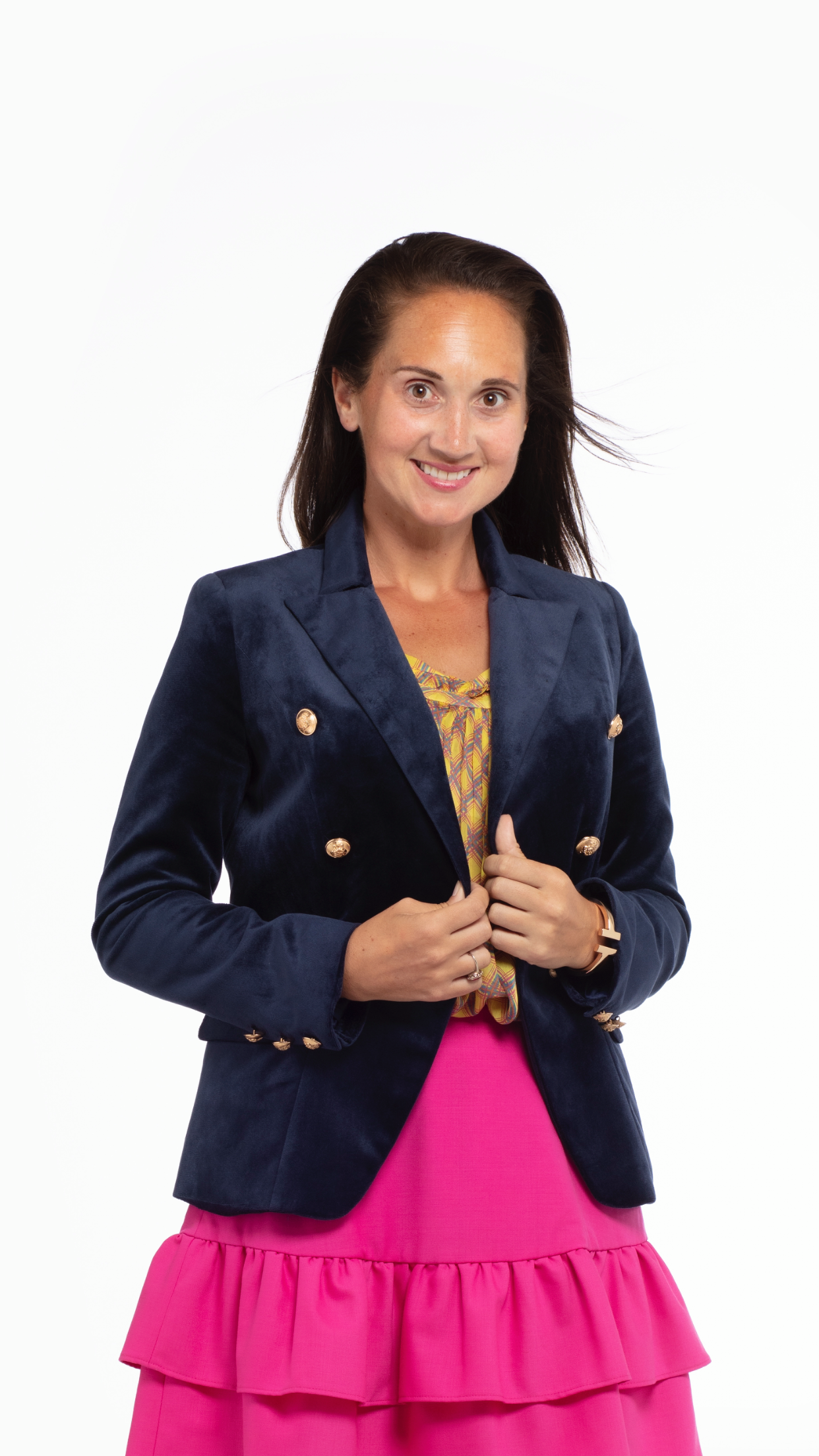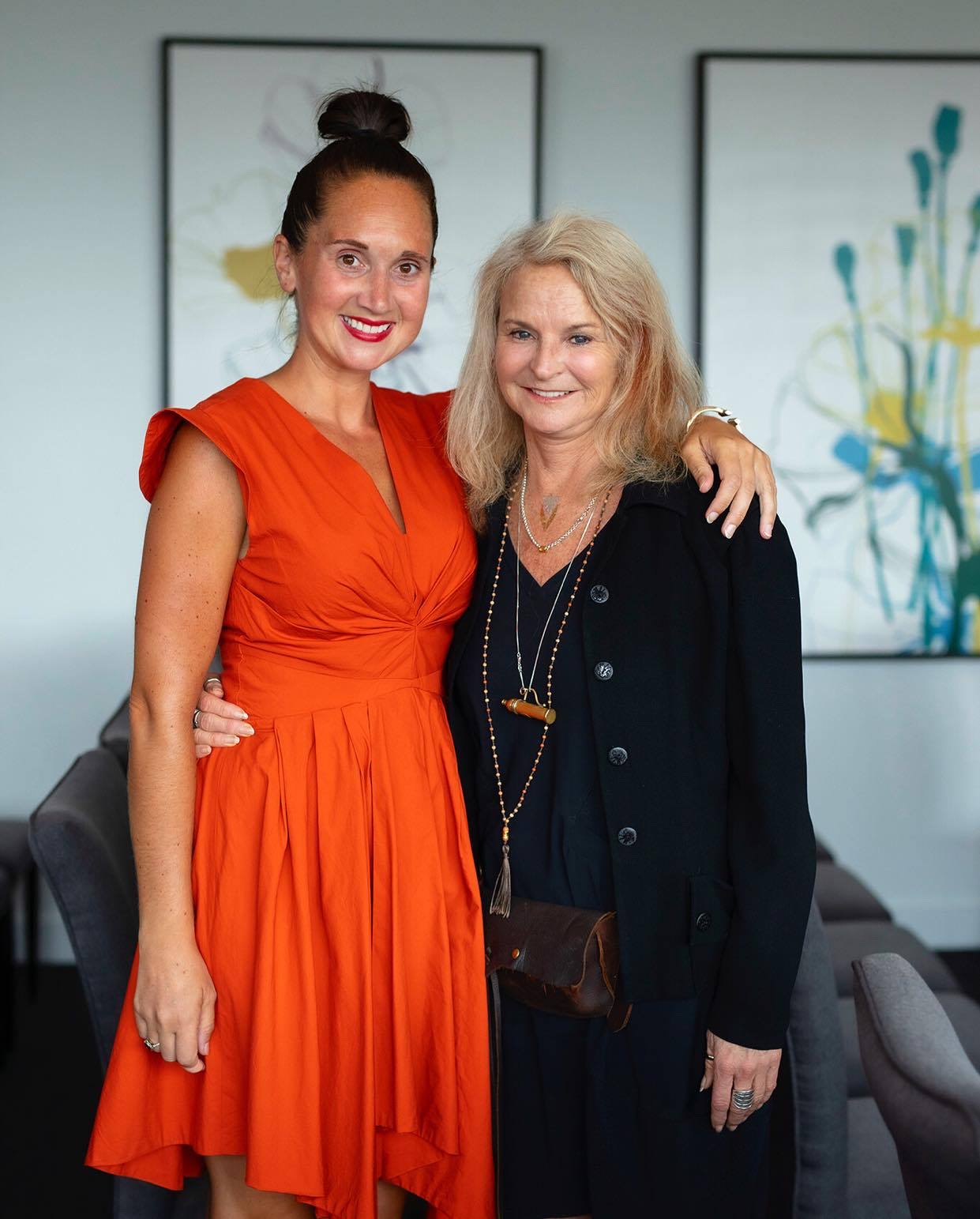Millie Thomas battled Anorexia Nervosa for 15 years. She is now fully recovered and works with Sunshine Coast-based charity endED as an Eating Disorder Recovery Coach helping clients across Australia and New Zealand to gain freedom from their eating disorders. She is also a certified Neuro-Linguistic Programming Practitioner and has been involved in establishing Australia’s first residential Eating Disorders facility “endED Butterfly House.” Millie believes that no matter how long or how hard someone’s journey with an eating disorder has been, full recovery is always possible.
“A blank canvas, rather than a deep, dark abyss.”
What coping strategies did you use to help you overcome your challenge?
I used a variety of coping strategies, including Neuro-Linguistic Programming (NLP), letting go of limiting beliefs, and the concept of becoming softer. I took a complete hiatus from social media, and then did a social media cleanse. I also took a complete break from exercise to break the cycle. I used nature, gratitude, and music. I visualized a blank canvas, rather than a deep, dark abyss.
What are some things that you learned that helped you feel better?
I learned that I can change my brain and the concept of the ED superhighway—creating new neural pathways; the power within to change my life and that full recovery is possible.

What are things that you had to accept in order to recover/maintain recovery?
I couldn’t let my ED micro manage my recovery. I wouldn’t know exactly how I would look at the end of the process. I was never going to know what other people thought of me—so I had to stop worrying about it. I had to accept that I was so much more than my body and my weight. I eventually accepted that I had a greater purpose than my ED.
Did your experience with mental illness/trauma help shape the way that you are leading your life ? Did it give you a sense of meaning and purpose in this world?
I learned to live my truth. I now know my life’s purpose. My experiences increased empathy and compassion for others who are suffering. Every day is a gift, and I don’t take anything for granted. I am determined to use my time here on Earth as productively as I possibly can.
What advice would you give teenagers who are dealing with similar various challenges?
I would advise them to get a treatment team—trust and transparency are key.
Your ED is a liar—don’t listen to it—listen instead to the people in your life who love and care about you. There is no such thing as not sick enough! You are so much more than your body. It’s important to know that full recovery is possible. Recovery can be long and hard but it is worth it. There is hope—never ever give up!

What would you tell yourself at 14 knowing what you know today?
Believe in and stand up for yourself. Your worth has nothing to do with your weight. You are a wonderful, strong, intelligent young woman with so much to offer this world and don’t let anyone or anything make you doubt that. Trust in and draw strength and hope from those who love you in moments when you are struggling. Your road to recovery will be a long and treacherous one, but it will be worth it because you will eventually find the life of freedom that you so deserve.
“There is no such thing as not sick enough!”
Based on your own experience are you able to share a few things with our readers about how to support a loved one who is struggling with mental illness/addiction/challenges?
Never underestimate the power of your presence. Listen to the truth without judgement. Be firm, but fair with love and compassion. If you are too emotionally charged face to face then write a letter/note. No matter what, continue to hold the hope for them—it’s so powerful!
Is there a message you would like to tell someone who may be reading this, who is currently struggling with challenges?
You have the power within you to rise up and overcome this. Your illness will try to convince you that you don’t, but please hear me when I say that you do. Recovery is a choice. A choice that you will have to make multiple times a day, a choice that will often be hard—but you are in control of that choice. Reclaim your power and make conscious choices that will move you closer towards your goals, closer towards the life you want to be living, and ultimately closer towards freedom. Recovery is more than worth it—you can do this!
Can you suggest a few reasons why mental Illness has become such a critical issue recently?
The pressure in our lives and the drive to “have it all” has contributed to the issue. The fact that we feel we always have to be achieving—there’s no time to just be. Our society glorifies being stressed/busy, like it’s a badge of honor. Social media leads to constant comparison, Photoshop fosters unrealistic images. We are a society that is indoctrinated with diet culture—we focus on bodies, appearance.
Based on your insight, what concrete steps can a) individuals, b) corporations, c) communities and d) leaders do to address the core issues that are leading to this problem?
endED values community, connection, and compassion.
Individuals: Collective rising up and speaking out—your voice matters. Using our lived experience to educate and inform. ED specifically: Stop glorifying and focusing on outward appearance, change your language around food and bodies, examine any judgement that you have—fatphobia, etc.
Corporations: Mental health and wellness as a whole needs to be a key focus, not just lip service. Corporations should offer flexibility to allow people to continue to work and have a purpose while having time and space to work through their challenges.
Communities: Focus on opportunities for connection. Safe spaces for people to be heard and not judged.
Leaders: Lead by example. Opportunity to influence change and in doing so improve, and in some cases, save lives. Use their voices to raise awareness and challenge the status quo/societal ideals.
As you might be aware, one of the challenges of those dealing with mental illness is the harmful and dismissive sentiment of ,“Why can’t you just control yourself/stop drinking/obsessing/using drugs…” What do you think needs to be done to make it apparent that dealing with mental illness is a very serious matter that requires the right attention?
You only have to look at the statistics to see evidence of the frightening severity of the issue! It is not a choice! I think there could be a potentially beneficial public health campaign using people with lived experience.
What are your favorite books, podcasts, or resources that have helped you with your struggle?
8 Keys to Recovery from an Eating Disorder Workbook
By Carolyn Costin and Gwen Schubert Grabb
Goodbye Ed, Hello Me: Recover from Your Eating Disorder and Fall in Love with Life
The F*ck It Diet: Eating Should Be Easy
By Caroline Dooner
Anti-Diet: Reclaim Your Time, Money, Well-Being and Happiness Through Intuitive Eating
By Christy Harrison
Instagram accounts to follow:
@balancedtx
@themindfuldietitian
@theeverybodyisbeautifulproject
@drcolleenreichmann
@chr1styharrison
@jennifer_rollin
Podcasts
ED Matters
Food Psych Podcast with Christy Harrison
Body Kindness with Rebecca Scritchfield
Recovery Warriors with Jessica Flint
Eating Disorders Recovery Podcast with Tabitha Farrar
Can you please give us your favorite “Life Lesson Quote”? Can you share how that was relevant to you in your life?
“To know even one life has breathed easier because you have lived. This is to have succeeded.” -Ralph Waldo Emerson
Success means so many different things to different people and coming face to face with my own mortality certainly changed my own definition of success. We are all on this rollercoaster ride of life together and I feel it is our duty to one another to be there for each other. To teach, guide, console, love and most importantly hold the torch of hope for one another during times of uncertainty and despair. I truly believe that connection, community, and compassion are more powerful than we realize.
“To know even one life has breathed easier because you have lived. This is to have succeeded.” -Ralph Waldo Emerson
You are a very inspiring person. If you could inspire a movement that would bring the most amount of good to the largest amount of people, what would that be? You never know what your idea can trigger.
I would love to see lived experience in terms of mental illness recognized and respected in every country in the world for the invaluable resource that it is. And for lived experience insights to be used to inform policy and strategy at a federal level. The power of lived experience should not be underestimated—who better to drive meaningful change in mental health systems across the globe that are all too often failing those that need them the most.
If you’re interested in learning more about endED, you can reach out with the contact info below.
@millietnz
@endedaustralia
Resiliency doesn’t look the same on everyone, and everyone walks a different path in life. My interview series seeks to explore some of the common tactics people use to overcome challenges and get to the other side as a stronger person living an authentic life. You can learn more about The Karma Method, which is the signature coaching and therapeutic method used by Bespoke Wellness Partners on our website.

